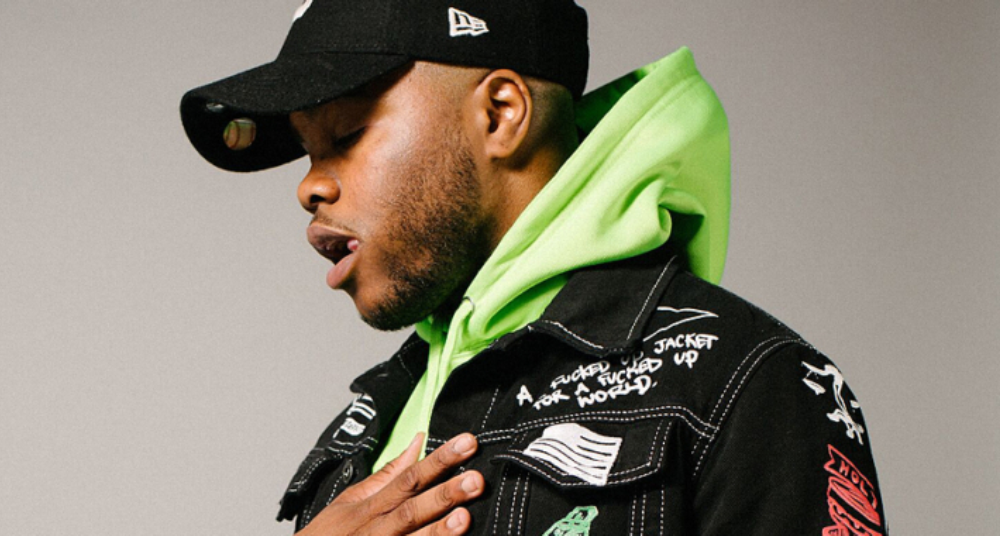I will always have an artist inside of me, whether that’s in a creative or business sense. For me, it’s all the same thing. When the pandemic began, it prompted me to consider my skill set and ambitions, and I decided to make the jump from artist to entrepreneur. So, while I haven’t hung up my gloves entirely, I knew it was time to pivot.
One thing that became clear to me was that I had multiple skill sets that I wasn't tapping into. From knowing how to start a business, to discovering talent, songwriting, executive production, designing clothes – the lot. I began to do all of that during the pandemic whilst still recording music. During this time, I also worked in-house at a management company so I could learn the intricacies of the trade. Soon, I began acquiring talent and letting my network know that I had moved into management so that we could collaborate.
'I know the difference between having a poor manager and a great manager that adds value to your career.'
I had never envisioned that I would start my own management company, but I realised that if I wanted the acts I was working with to receive the service they deserved, I needed to build the team myself. I’ve been through everything most acts have been through. I’ve messed up contracts, had sleepless nights, travelled the world and fought for my art. Whatever it is, I’ve seen it. I’m on the side of the talent because we’ve fought the same fight and I can identify with that. I know the difference between having a poor manager and a great manager that adds value to your career. It's not just a person putting out music – you’re responsible for someone’s livelihood. Artists often sacrifice a lot to follow their dreams.
I started out looking after a few acts on my own, but I was discovering so much great talent that I had to expand. Now, my company Peral Management is a team of six including myself, looking after four artists and six producers whose work has been certified silver, reached the top 40, and been nominated for Rated Awards.
There have been challenges, but I’m proud of what I’ve achieved with Peral. We are in a time where people like myself can be self-sufficient outside of a label and build something of their own. I'm thankful to Alwayz Recordings for showing me at a young age that you can make a living out of selling records. We were raised in the inner city and it’s hard not to get wrapped up in a lifestyle that can get you in trouble, but I’ve always wanted to set an example for the next generation and demonstrate that there is another route. It’s hard, and it’s definitely a risk, but the reward at the other end has been priceless.
'You need to know what your audience is expecting from you, who they are and how to locate them at the bare minimum.'
If you compare it to the USA in the early 2000s – Murder Inc., Roc-A-Fella and Cash Money Records were making an impact globally – our scene is still in its infancy. But I believe that we are growing. Black-owned record labels, publishing and management companies are being formed and as distribution evolves, we’re becoming more and more able to release music in the way we see fit. We’re already decision makers and we’re already moving in the right direction. We’re innovators, and that’s not always an easy path. You have to have confidence. Being an innovator in the music industry in 2022 comes down to being able to take risks, not being afraid to make mistakes, going against the grain and implementing new ideas that you strongly believe in.
It’s important to remember that knowledge is power. In today’s music industry – as much as you may know how to make great music – you need to know your business. You need to know what your audience is expecting from you, who they are and how to locate them at the bare minimum. You have to serve them because that's who keeps your business going. On top of that, you need to be able to build the right team around you – the right accountant, manager and lawyer – to make sure your contracts are properly vetted and you’re handling your finances properly.
'It's about ownership, creative control, a royalty split. Get your influence to the highest possible level and learn how to leverage that.'
You have to learn the game. How are you collecting your publishing? If you’re in a deal – how much do you have to recoup before you get paid? How are you negotiating your splits? You constantly have to be learning, looking at your revenue streams and asking, ‘Am I monetising this to its maximum potential?’
Your brand is extremely important. Major corporations are buying into the culture and want to use your brand for exposure, so you have to know about your cultural currency and influence. They’re going to use your awareness and audience to drive sales, so they question you need be asking is, ‘How am I going to get a piece of that?’ It's not just about free clothes or a live show anymore, or even a cheque. It's about ownership, creative control, a royalty split. Get your influence to the highest possible level and learn how to leverage that.
You have to be ready to act, and be an advocate for yourself and your artists, because nobody else is going to do it for you.





